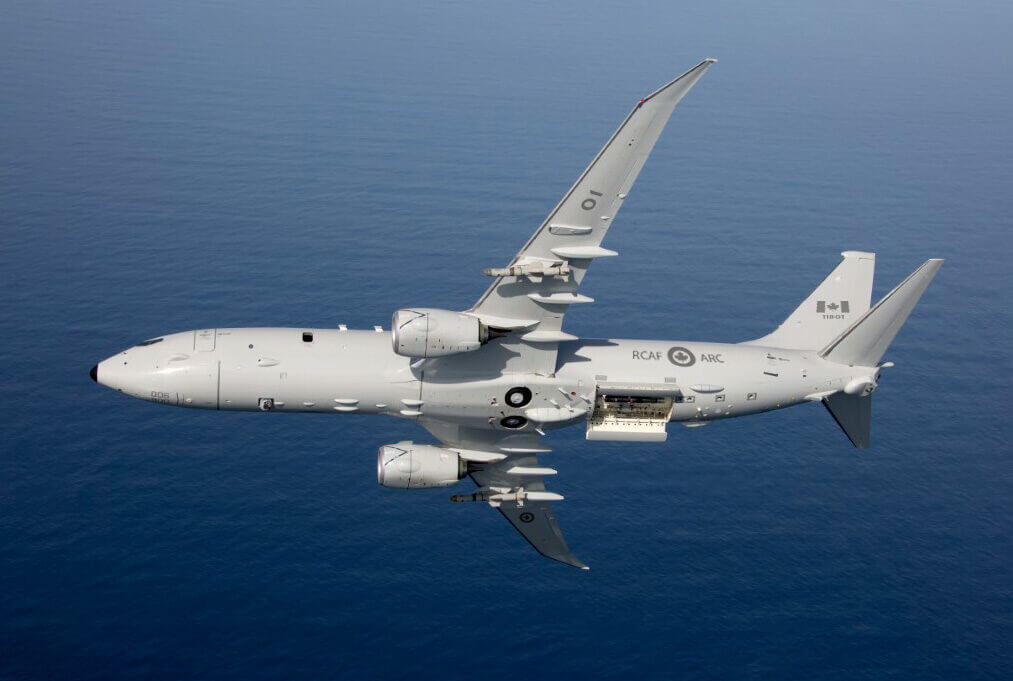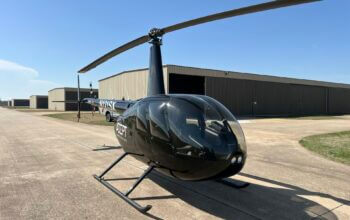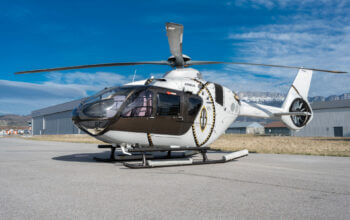Estimated reading time 5 minutes, 46 seconds.
The U.S. State Department has approved the possible sale of 16 Boeing P-8A Poseidon maritime patrol aircraft and related equipment to Canada for approximately US$5.9 billion.
The Defense Security Cooperation Agency (DSCA) issued a notification to Congress on June 27 of the potential foreign military sale.
The Canadian government submitted a letter of request to the U.S. government in March 2023 for the acquisition price of the 16 Boeing-built aircraft, which would replace the Royal Canadian Air Force (RCAF) fleet of 14 CP-140 Aurora aircraft, a variant of the Lockheed Martin P-3 Orion.

Based on feedback from a request for information issued to the defense and aerospace industry in February 2022, the government has stated the P-8A is “the only currently available aircraft that meets all of the operational requirements” for its Canadian Multi-Mission Aircraft (CMMA) project to provide the RCAF with a next-generation anti-submarine warfare and intelligence, surveillance and reconnaissance platform.
The Poseidon “is a proven capability that is operated by several of Canada’s defense partners,” the government noted, including all the Five Eyes allies — the United States, United Kingdom, Australia, New Zealand — as well as Norway, India, and South Korea. The P-8 has also recently been acquired by Germany.
In a press release, the DSCA said “this proposed sale will increase Canadian maritime forces’ interoperability with the United States and other allied forces, as well as their ability to contribute to missions of mutual interest. This will significantly improve network-centric warfare capability for the U.S. forces operating globally alongside Canada. Canada will have no difficulty absorbing this equipment into its armed forces.”
According to the DSCA, the estimated cost of $5.9 billion would include up to 16 aircraft as well as numerous onboard systems such as joint tactical radio; embedded GPS and navigation; infrared countermeasures; electro-optical and infrared MX-20HD sensors; electronic countermeasures and dispenser systems; tactical open mission software; AN/AAQ-2 acoustic systems; AN/APY-10 radar; next-generation missile warning sensors; AN/UPX-43 IFF interrogators; and a host of cryptographic capabilities.
The sale would also include spare components, spare CFM International 56-7B series turbofan engines, support equipment, training and training devices, engineering technical assistance, as well as contractor engineering technical services and logistics support, among other services.
“Implementation of this proposed sale will require multiple trips by U.S. government representatives and the assignment of contractor representatives to Canada on an intermittent basis over the life of the case to support delivery and integration of items and to provide supply support management, inventory control, and equipment familiarization,” the DSCA noted.
The agency added that in addition to Boeing as the prime contractor, “there are a significant number of other companies under contract with the U.S. Navy that will provide components, systems, and engineering services during the execution of this effort. While the purchaser typically requests offsets, any offset agreement will be defined in future negotiations between the purchaser and the contractor(s).”
In advance of a bid for the CMMA project, Boeing assembled a core of Canadian-based companies called Team Poseidon that includes CAE, GE Aviation Canada, IMP Aerospace & Defence, KF Aerospace, Honeywell Aerospace Canada, and Raytheon Canada.
The OEM has noted that it is “committed to deliver industrial and technological benefits on the P-8 program, significantly growing Canada’s aerospace and defense industry.”
Recently, Boeing revealed that if the P-8 is selected by Canada, it would generate nearly 3,000 jobs and contribute approximately $358 million in economic output to the country annually — according to an independent study conducted by economists at Ottawa-based Doyletech Corporation.








